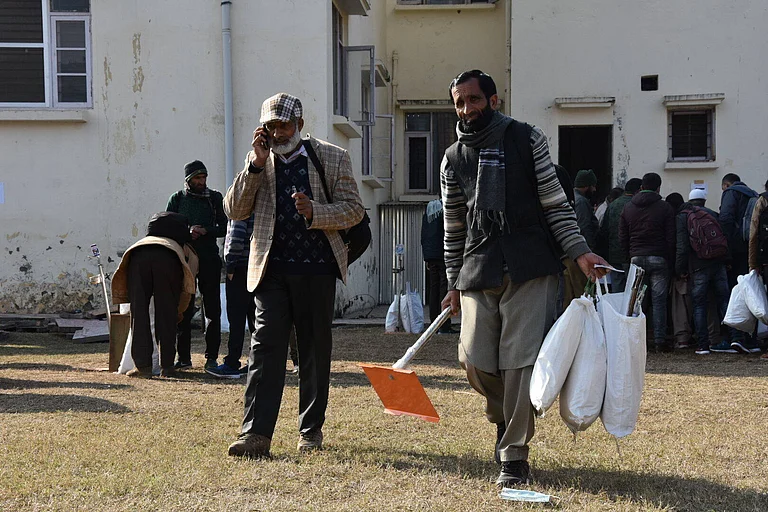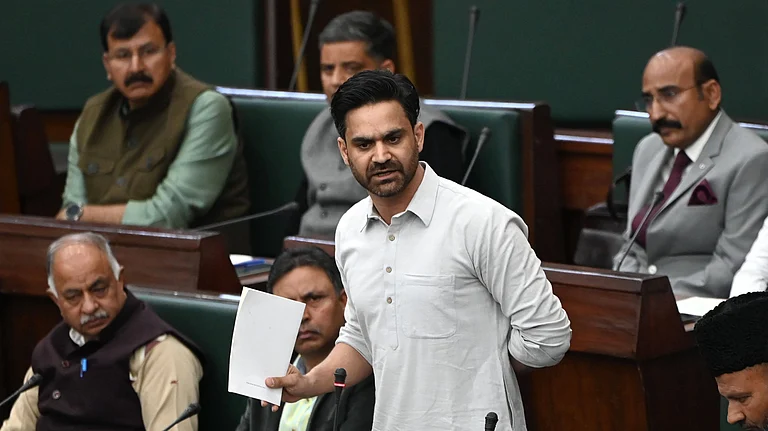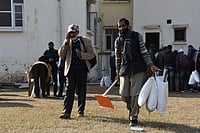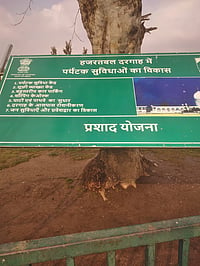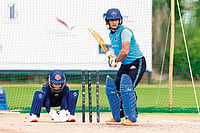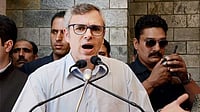Jammu and Kashmir Chief Minister Omar Abdullah has asked the Union Territory’s (UT’s) Lieutenant Governor, Manoj Sinha, to refrain from transferring officers in the civil administration under the garb of law and order, while also seeking that the IAS officers should be posted on the recommendations of the Council of Ministers.
According to top government sources, the CM was miffed after LG Sinha made transfers in the Revenue Department on April 1, which he himself heads. The government’s General Administration Department (GAD) shifted 48 officers, including the Additional Deputy Commissioners (ADCs) and Sub Divisional Magistrates of the Revenue Department. The transfers were made on LG Sinha's orders.
According to sources, the LG has contended that he retains the powers to make transfers in the Revenue Department as the revenue officers are executive magistrates and play a key role in handling the “law and order” problems.
Sources said the LG made the transfers as the revenue officers from the rank of Naib Tehsildars to District Magistrates also have the powers of executive magistrates.
In a separate order issued after the one on April 1, Jammu and Kashmir’s Law department, under BNSS, appointed three officers as executive magistrates and Additional District Magistrates in district Anantnag on April 16. The order was issued by Law Secretary Achal Sethi.
Sethi said that the orders of conferring the powers of “executive magistrates to ADCs are issued on the recommendation of the Deputy Commissioner, and the procedure was laid only in the BNSS.”
A senior government official, while referring to several provisions of Bharatiya Nagarik Suraksha Sanhita (BNSS) said that the “executive magistrate can order a person to execute a bond for good behavior on the information that a person is concealing presence and that there is reason to believe that he is doing so to commit a cognisable offence” or invoke similar measures “on information that any person is likely to commit a breach of the peace or disturb the public tranquility.”
A top source in the government said that “it has been made clear that the revenue officials are part of the civil administration and their transfers have to be done by the CM and not the LG.”
“Even if the transfers of magistrates have to be done in the revenue department, that has to be done by the government, which is the CM,” sources said. “Also, as part of the business rules, the transfers of IAS officers should be done on the recommendations of the council of ministers.” In the UT, the transfer of IAS officers was being done by the LG.
Sources said that since CM holds the powers in civil administration, “we are seeking that the transfers of IAS officers should be done on the recommendations of the Council of Ministers.”
In the past, the CM has indicated that restricting his powers to transfer IAS officers has affected governance in the Union Territory and has sought that Jammu and Kashmir be granted full statehood so that all powers, including the transfer and posting of police officials, are done by the elected government.
CM’s Advisor, Nasir Aslam Wani, confirmed that the issue of transfers of revenue officials has been taken up with LG Sinha. “These issues are under the consideration of the government,” he said.
Earlier, when Jammu and Kashmir was a state, the Business Rules were issued under the Constitution of Jammu and Kashmir. As per those rules, it was the Cabinet that was to be collectively responsible for all the “executive orders issued in the name of the Governor or of the Government of Jammu and Kashmir, whether such orders are authorised by an individual Minister on a matter about his portfolio or as the result of discussion at a meeting of the Cabinet."







